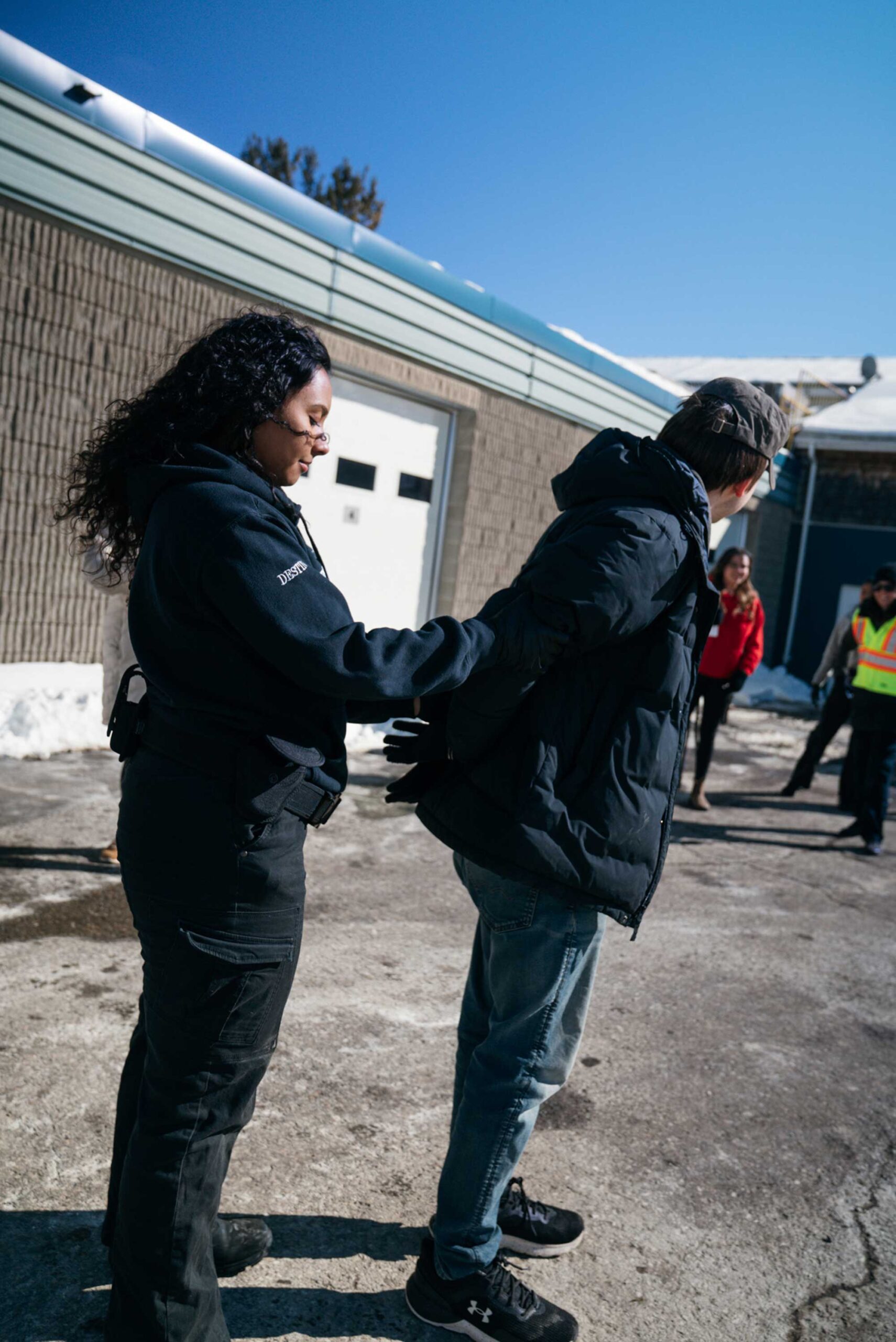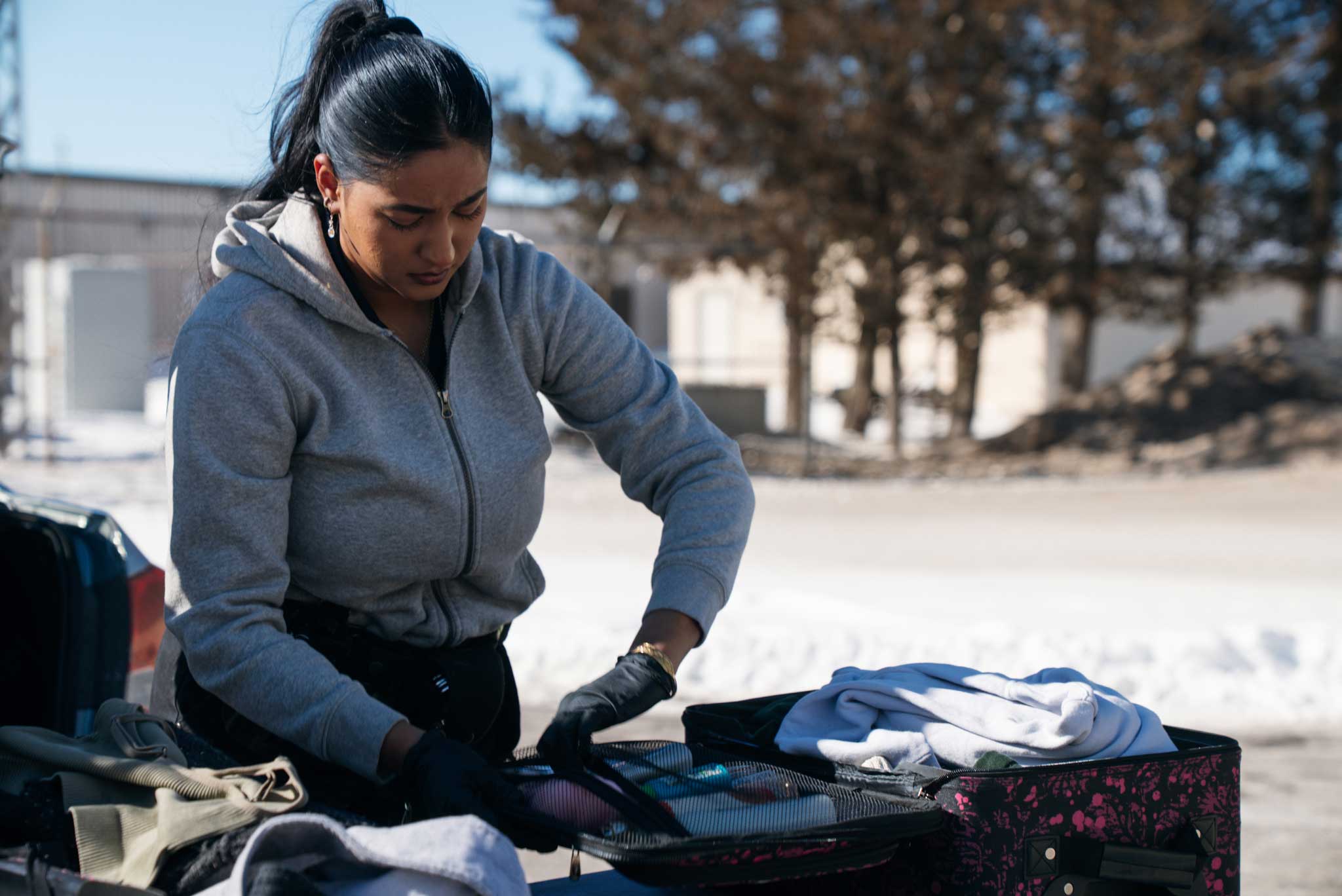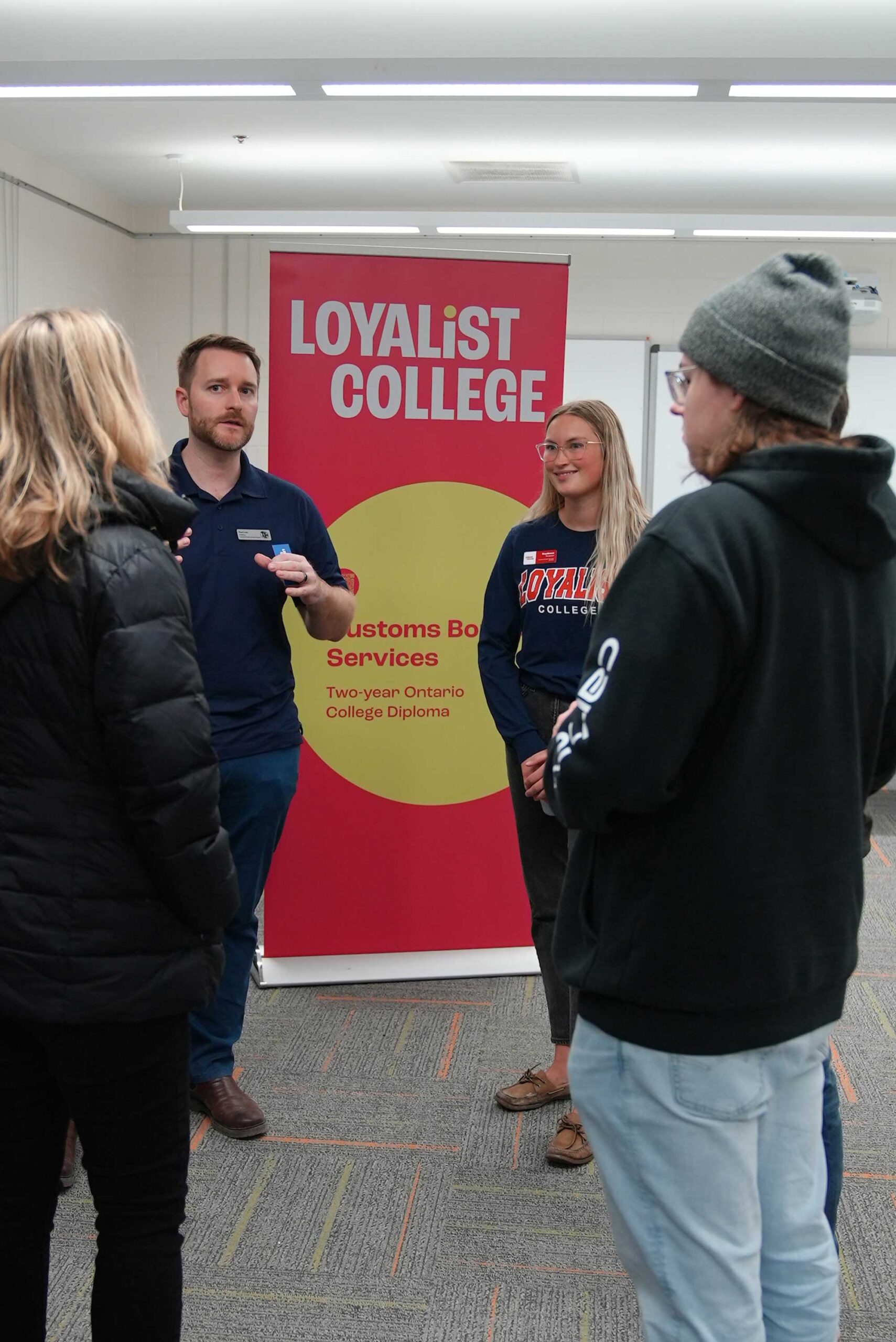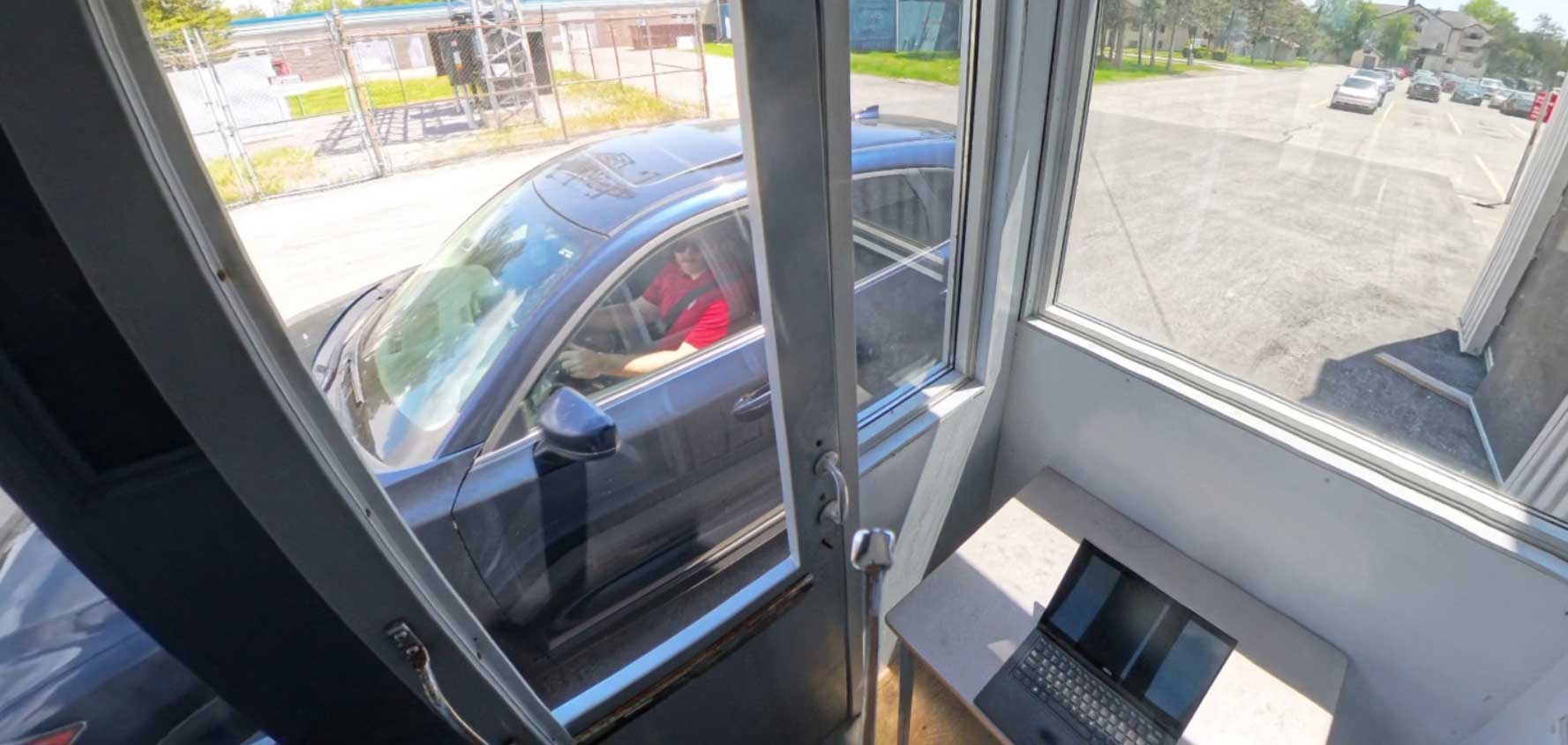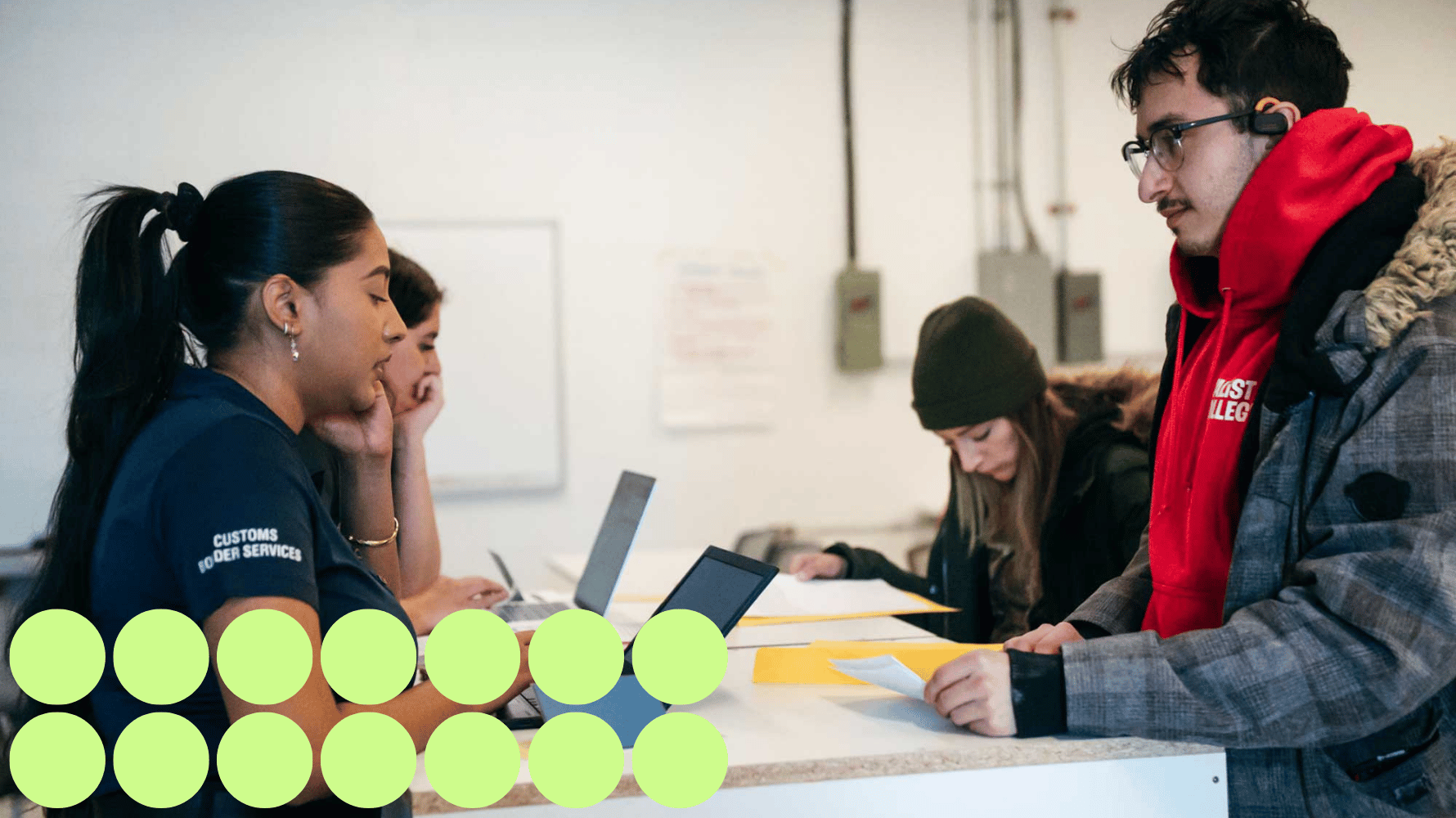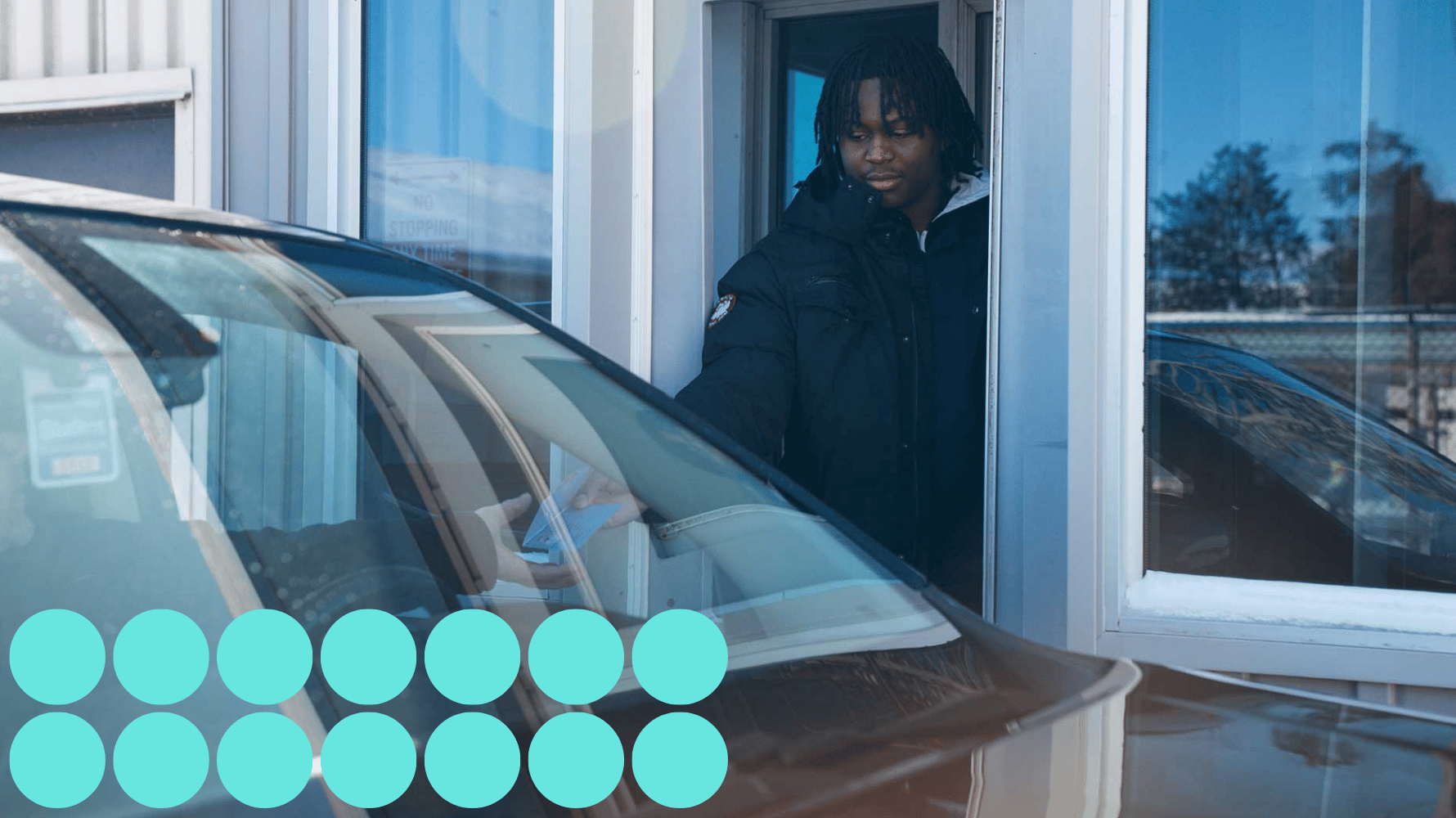Find your career
Graduates of this innovative program are extremely well regarded by employers and business is booming. In just two years, you can train for a lucrative career within the government or the private sector:
- Employers include private businesses, customs brokerages importing and exporting and freight forwarders that ship goods throughout the world.
- Graduates are permitted to enroll in the Canadian Society of Customs Brokers (CSCB) Certified Customs Specialist (CCS) course without having to meet the one-year work requirement.
- Learn from industry leaders and engage in immersive virtual learning and real-world simulations.
Graduates are also qualified for front-line positions with the Canada Border Services Agency:
- Oversee border services for millions of people travelling by air, car, rail and boat.
- Welcome more than 200,000 immigrants and refugees to Canada each year.
- Administer import and export requirements for animals and plants.
- Use the latest training and technology to keep illicit drugs, firearms and harmful pests and diseases from entering the country.
- Can progress to careers in intelligence, auditing and investigations, with field experience.
Our grads get great jobs
- Border Services Officer, Canada Border Services Agency
- Municipal Law Enforcement Officer, City of Mississauga
- Enforcement Officer, Canada Border Services Agency
- Customs Release Analyst, Livingston International
- Border Services Officer, Pearson International Airport
- Program and Client Services Coordinator, Immigrant Services
Is it for you?
People enter justice studies from all different backgrounds. Those who thrive in Customs Border Services are the ones who have:
- Good judgment
- A keen eye for detail
- Self-discipline
- An appreciation of Canada’s rich cultural diversity

Enrolling in the Customs Border Services Program at Loyalist College has been an incredibly valuable experience. The program provides a strong foundation in customs regulations, immigration procedures, and border security, while also incorporating hands-on training that prepares students for real-world scenarios.
Jacob Vinet, Customs Border Services, 2024


